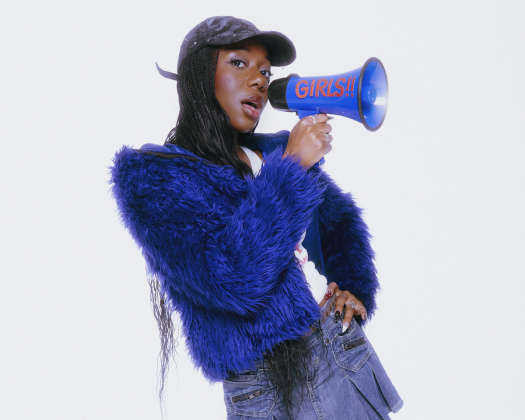Last month, Talib Kweli cancelled an upcoming live date at a venue in Kansas City in response to its booking of Norwegian black metal outfit Taake, who have been accused of being anti-Semitic and anti-Muslim, in addition to Nazi sympathizers. After the band criticized Kweli and "Antifa and its supporters" in a statement yesterday (February 28), the rapper has now penned a lengthy essay on free speech and white supremacy in America.
Kwelie's essay, titled Free Speech or Die?: The paradox of self-victimization by the alt-right, discusses the actions of far-right activist Jeremy Christian, alt-right punching bag Richard Spencer, last year's white nationalist rally in Charlottesville, VA, and former Milo Yiannopoulos intern Lane Davis.
"The problem is that many on the far right, the side adjacent to white nationalist and Nazi types like Christian, use the principle of free speech as an excuse to say whatever they want without consequence," Kweli writes. "What today's right-wing free speech advocates are truly advocating is for Nazis, the KKK, and other white supremacist organizations and sympathizers to have additional, special rights the rest of us do not have: the right to say whatever they want without dissent, argument, pushback, or consequence."
Discussing reactions to rallies and protests, Kweli wrote that his "philosophy on seeing someone who is a Nazi or at least sympathetic to Nazis getting punched in the face is anti-violence but pro-karma. I don't believe violence solves a problem — violence only begets violence. I do believe in self-defense, so while I will fight to protect myself and others from the threat of violence, I will not throw the first blow."
Kweli also delves into the historical intersections of freedom of speech and popular music, citing Tipper Gore's crusade against explicit content, 2 Live Crew, and the controversy over Ice-T's "Cop Killer" single, released by Body Count in 1992.
"Ice-T has always been an American citizen with the right to free speech, but police were publicly stating they were willing to disobey the law because they did not like what he had to say about them," Kweli noted. "By 2016, police were going out of their way to protect white nationalists and neo-Nazis from prosecution, just like they had done for the KKK for many years."
Kweli concluded by writing that "freedom of speech in America simply means the government cannot arrest you for what you say. This I agree with. This doesn't mean I must tolerate or listen to what you have to say, and it doesn't mean that your misinformed opinions must be treated as fact or with respect, either in the flesh or on social media."
You can read his entire essay here.
Kweli delivered his Radio Silence LP late last year and is rumoured to be at work on a new album with Black Star.
Kwelie's essay, titled Free Speech or Die?: The paradox of self-victimization by the alt-right, discusses the actions of far-right activist Jeremy Christian, alt-right punching bag Richard Spencer, last year's white nationalist rally in Charlottesville, VA, and former Milo Yiannopoulos intern Lane Davis.
"The problem is that many on the far right, the side adjacent to white nationalist and Nazi types like Christian, use the principle of free speech as an excuse to say whatever they want without consequence," Kweli writes. "What today's right-wing free speech advocates are truly advocating is for Nazis, the KKK, and other white supremacist organizations and sympathizers to have additional, special rights the rest of us do not have: the right to say whatever they want without dissent, argument, pushback, or consequence."
Discussing reactions to rallies and protests, Kweli wrote that his "philosophy on seeing someone who is a Nazi or at least sympathetic to Nazis getting punched in the face is anti-violence but pro-karma. I don't believe violence solves a problem — violence only begets violence. I do believe in self-defense, so while I will fight to protect myself and others from the threat of violence, I will not throw the first blow."
Kweli also delves into the historical intersections of freedom of speech and popular music, citing Tipper Gore's crusade against explicit content, 2 Live Crew, and the controversy over Ice-T's "Cop Killer" single, released by Body Count in 1992.
"Ice-T has always been an American citizen with the right to free speech, but police were publicly stating they were willing to disobey the law because they did not like what he had to say about them," Kweli noted. "By 2016, police were going out of their way to protect white nationalists and neo-Nazis from prosecution, just like they had done for the KKK for many years."
Kweli concluded by writing that "freedom of speech in America simply means the government cannot arrest you for what you say. This I agree with. This doesn't mean I must tolerate or listen to what you have to say, and it doesn't mean that your misinformed opinions must be treated as fact or with respect, either in the flesh or on social media."
You can read his entire essay here.
Kweli delivered his Radio Silence LP late last year and is rumoured to be at work on a new album with Black Star.




